Floor Hardener in Pakistan
When it comes to industrial and commercial flooring, durability is everything. Heavy traffic, machinery, and constant wear can lead to cracks, dusting, and early deterioration of concrete surfaces. This is where floor hardener plays a crucial role.
Floor hardeners in Pakistan are specialized materials applied to concrete surfaces to increase surface strength, resist abrasion, and enhance longevity. From warehouses and factories to parking lots and airports, floor hardeners are an essential part of modern construction and flooring systems.
In this comprehensive guide, we’ll cover everything you need to know about floor hardeners—their types, uses, advantages, installation methods, and maintenance.
What Is a Floor Hardener?
Installation Process of Floor Hardener
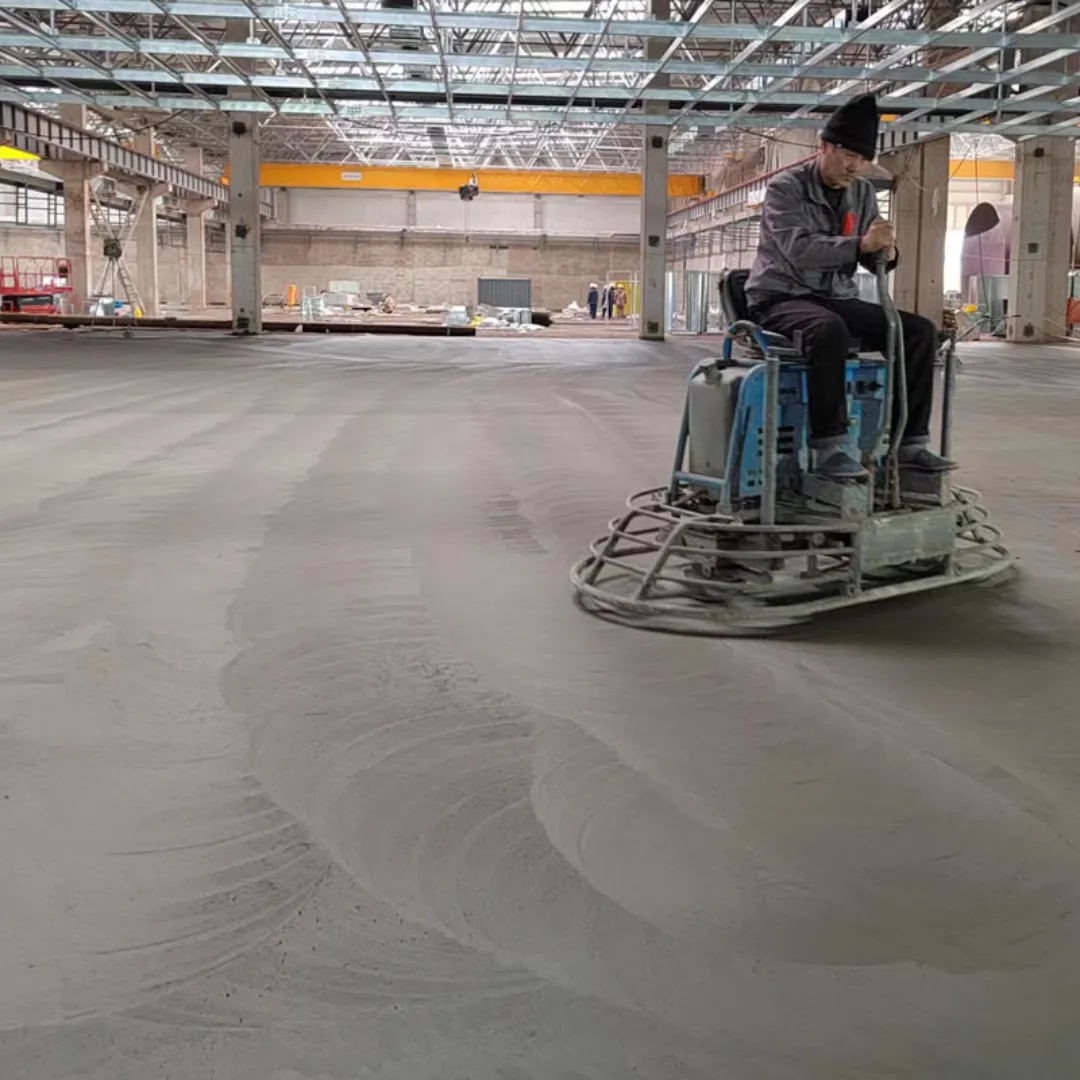
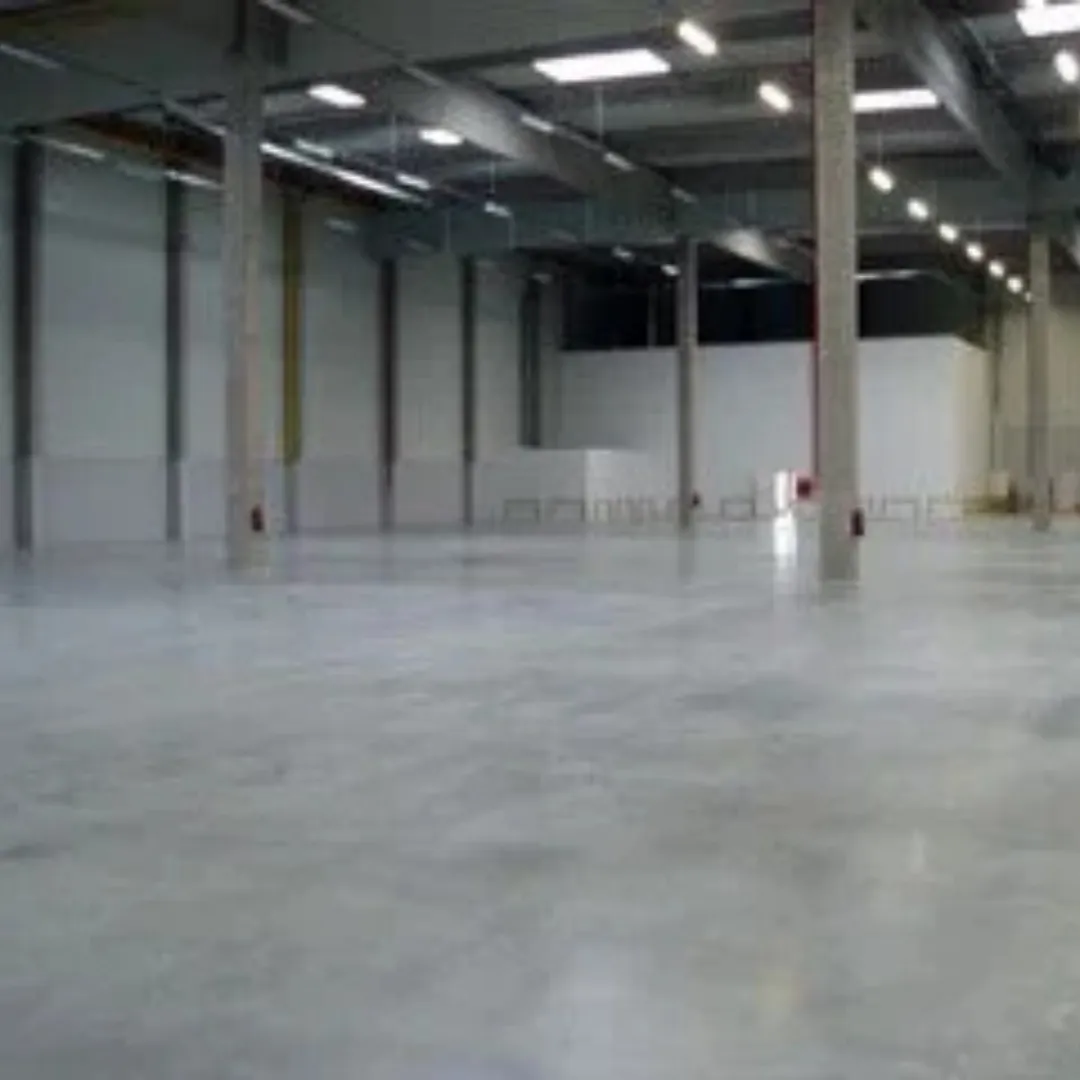
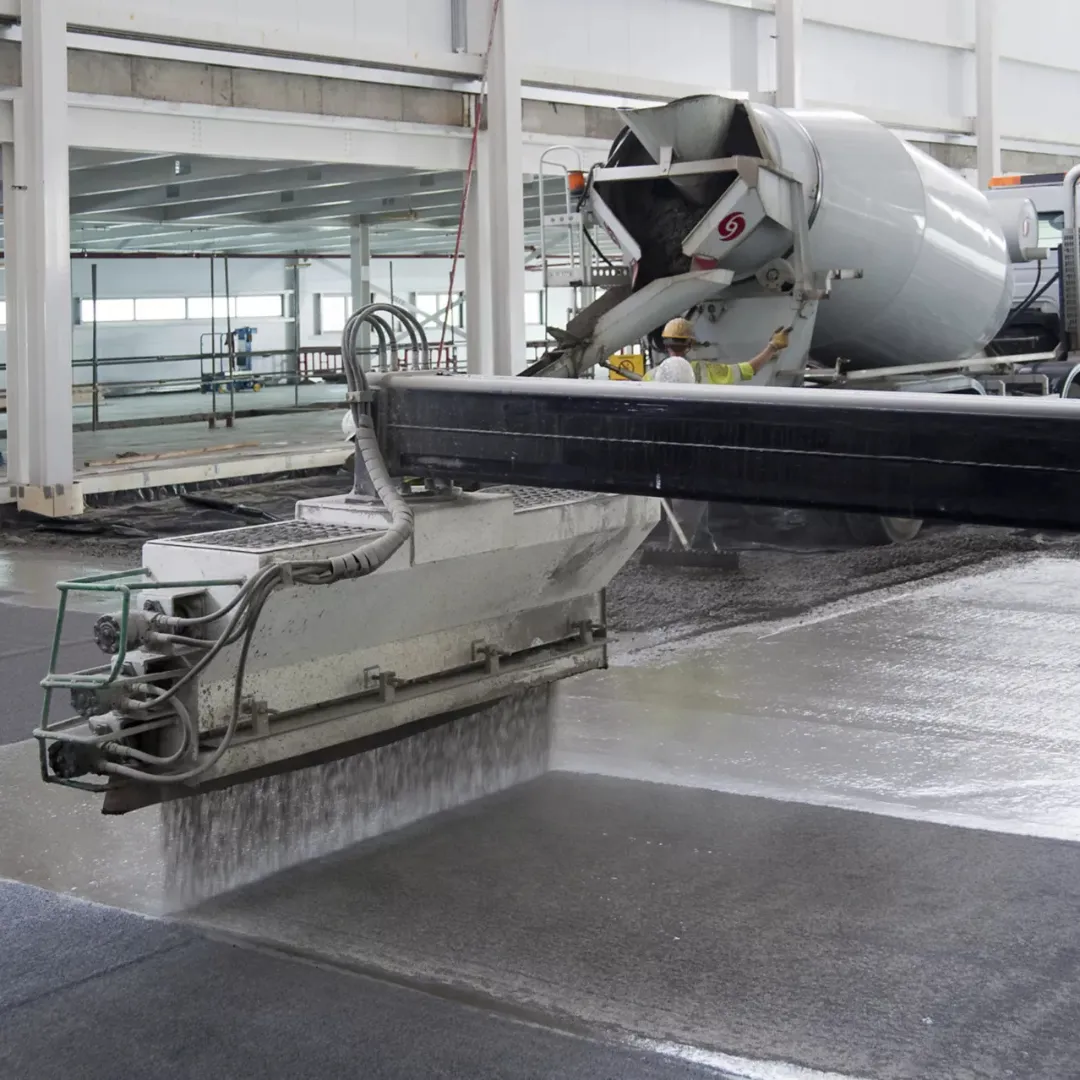
A floor hardener is a surface treatment or material applied to concrete floors to make them stronger, more durable, and resistant to wear and tear. It penetrates or integrates with the concrete to:
- Increase surface hardness
- Reduce dusting and erosion
- Enhance resistance against impact, abrasion, and chemical attack
- Improve the floor’s appearance and lifespan
Floor hardeners are widely used in industrial facilities, factories, logistics centers, and commercial buildings where floors are subjected to heavy loads and traffic.
Why Floor Hardeners Are Important
Ordinary concrete surfaces, though strong in compression, tend to wear out quickly under heavy use. Over time, they can develop surface cracks, dusting, and unevenness, resulting in:
- High maintenance costs
- Unsafe working environments
- Poor aesthetics
- Reduced service life
By applying a floor hardener, you can extend the lifespan of the floor and minimize maintenance costs.
Key Benefits
- 🧱 Increases surface hardness and strength
- 🚧 Improves abrasion and impact resistance
- 🧽 Reduces dusting and maintenance
- 🧼 Easier to clean and maintain
- 🏭 Suitable for high-traffic and industrial environments
Types of Floor Hardeners
Floor hardeners can be classified based on composition and application method. Choosing the right type depends on the flooring requirements, traffic load, and industry standards.

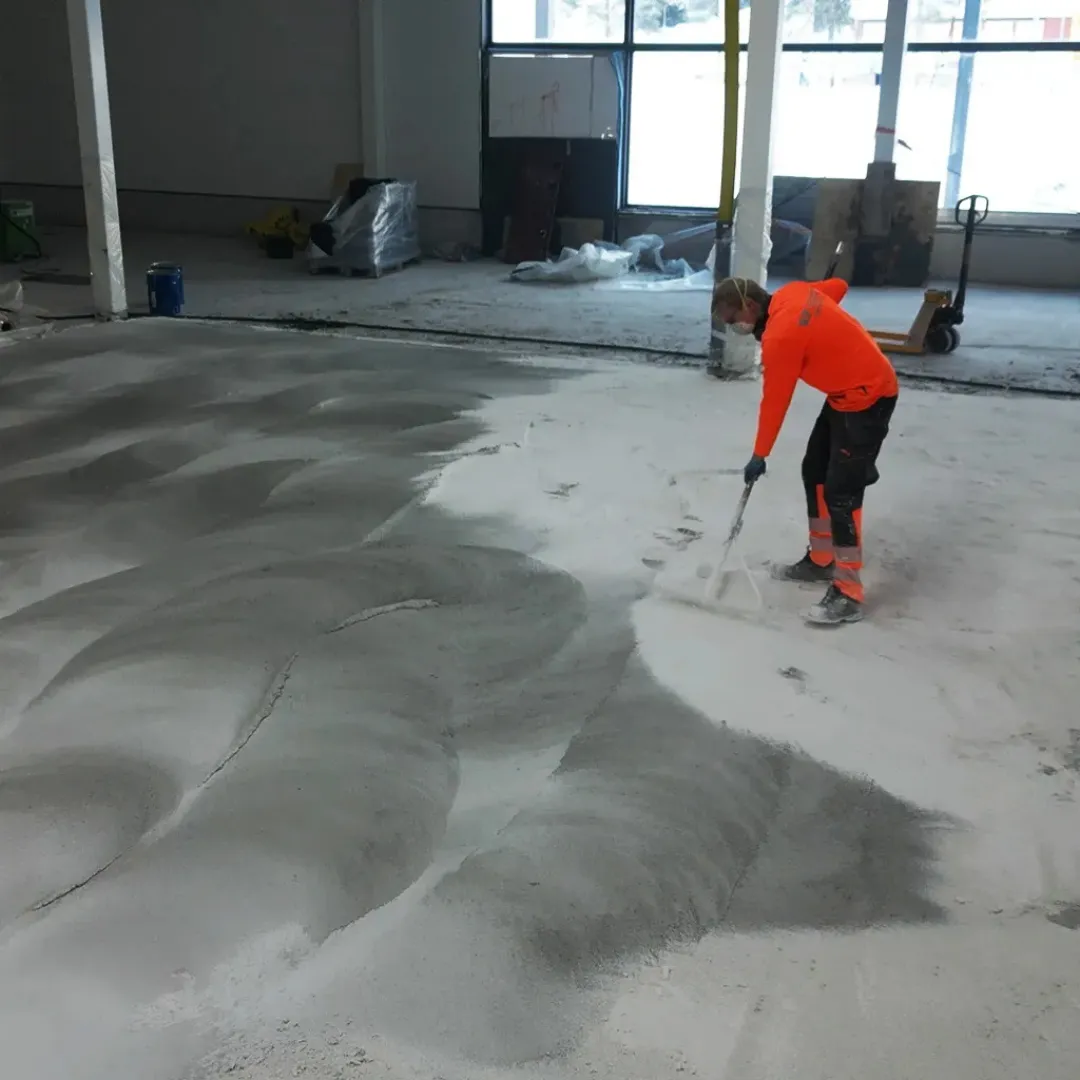
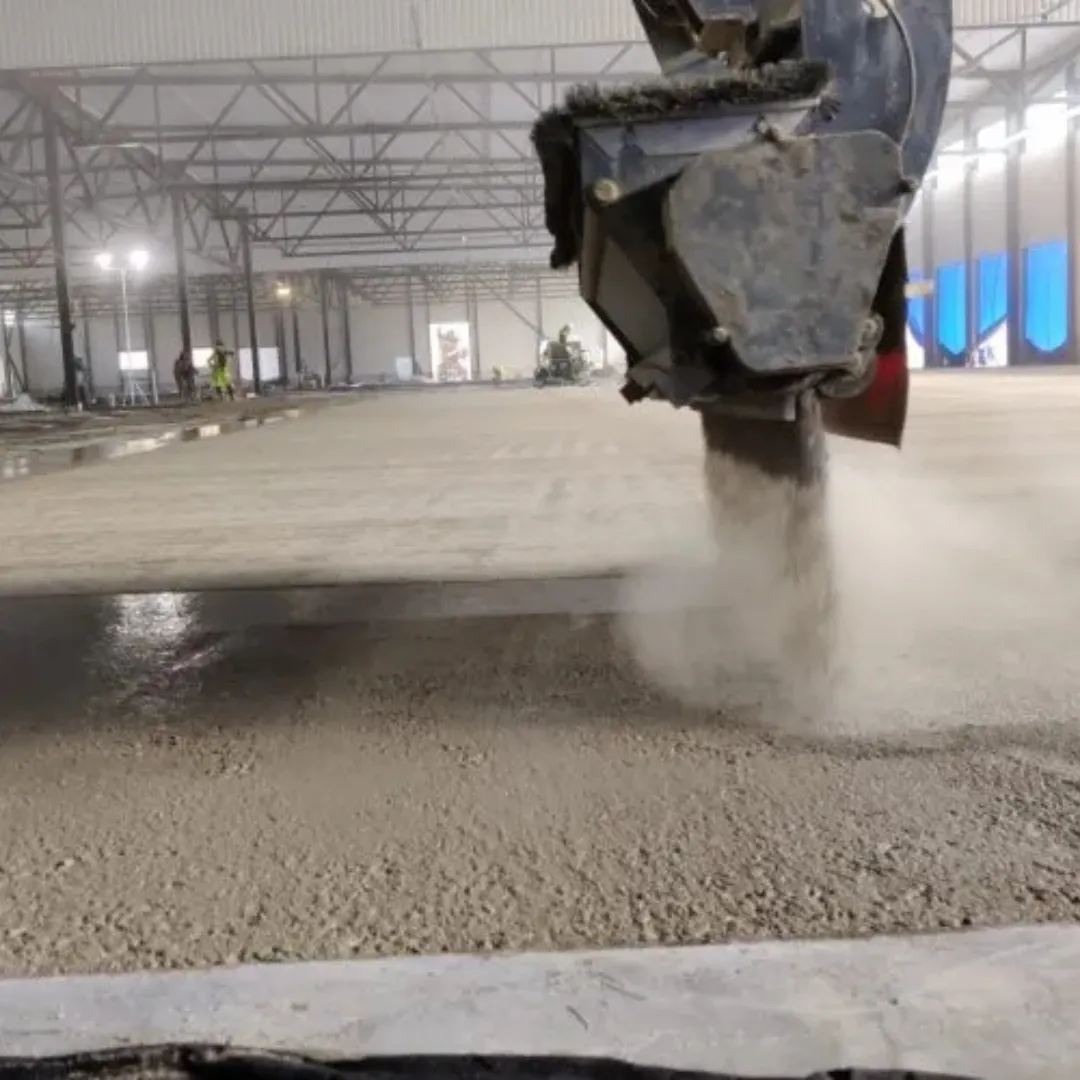
This is one of the most common types of floor hardeners. It consists of cement, hard aggregates, and special additives. It’s sprinkled onto freshly poured concrete and then troweled to achieve a hard, smooth surface.
- ✅ Non-rusting and dust-proof
- 🏗️ Suitable for warehouses, factories, and parking lots
- 🧪 Excellent abrasion resistance
Applications: Industrial floors, storage facilities, basements, parking areas.
I am text block. Click edit button to change this text. Lorem ipsum dolor sit amet, consectetur adipiscing elit. Ut elit tellus, luctus nec ullamcorper mattis, pulvinar dapibus leo.
Metallic Floor Hardener
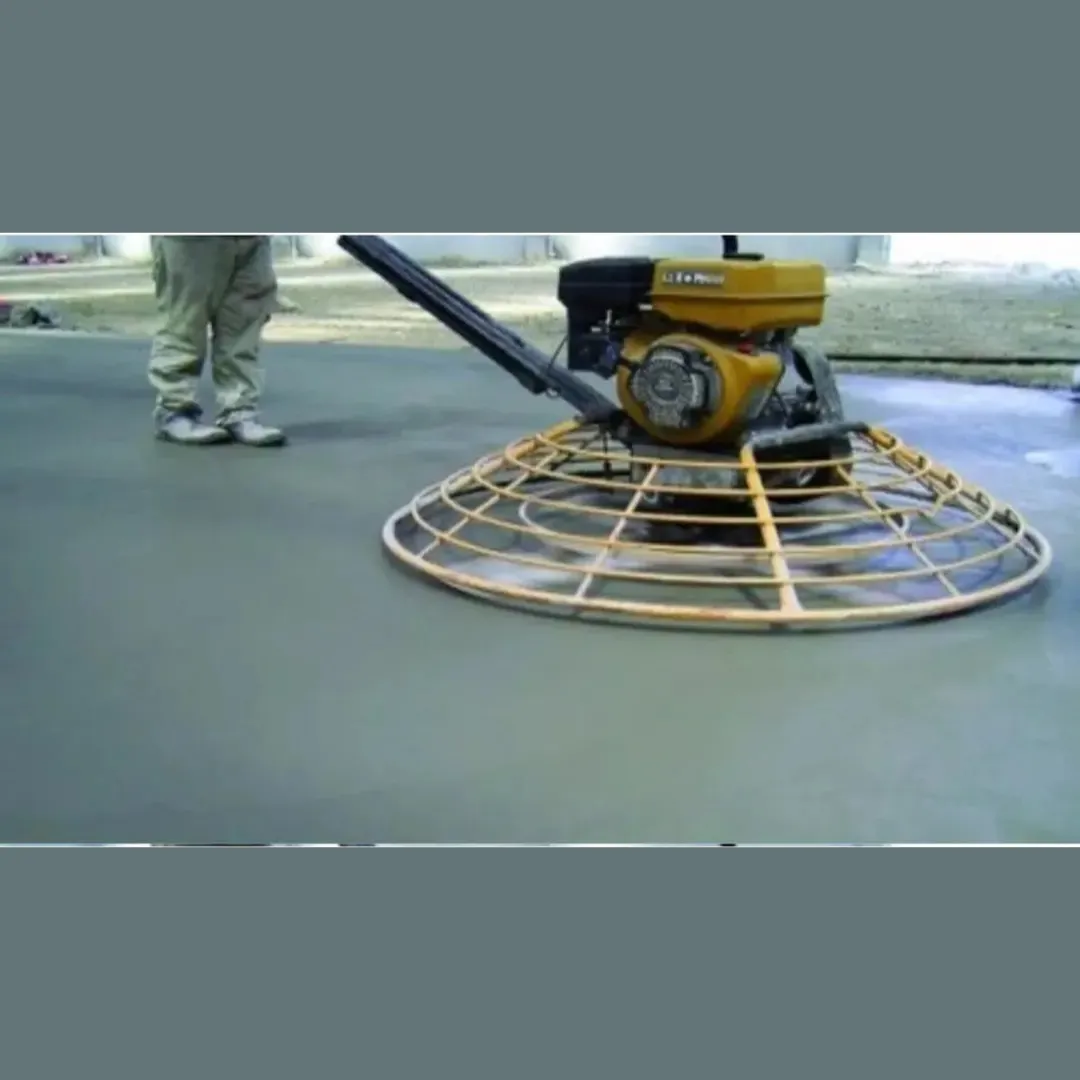


Made with metallic aggregates, this type offers superior strength and is ideal for areas with extreme mechanical stress.
- 💪 Very high impact and abrasion resistance
- 🚜 Suitable for heavy machinery and forklift areas
- 🚫 Must be applied in dry environments to avoid rust
Applications: Heavy industrial plants, loading bays, workshops, steel factories.
Chemical Floor Hardener (Liquid Densifier)
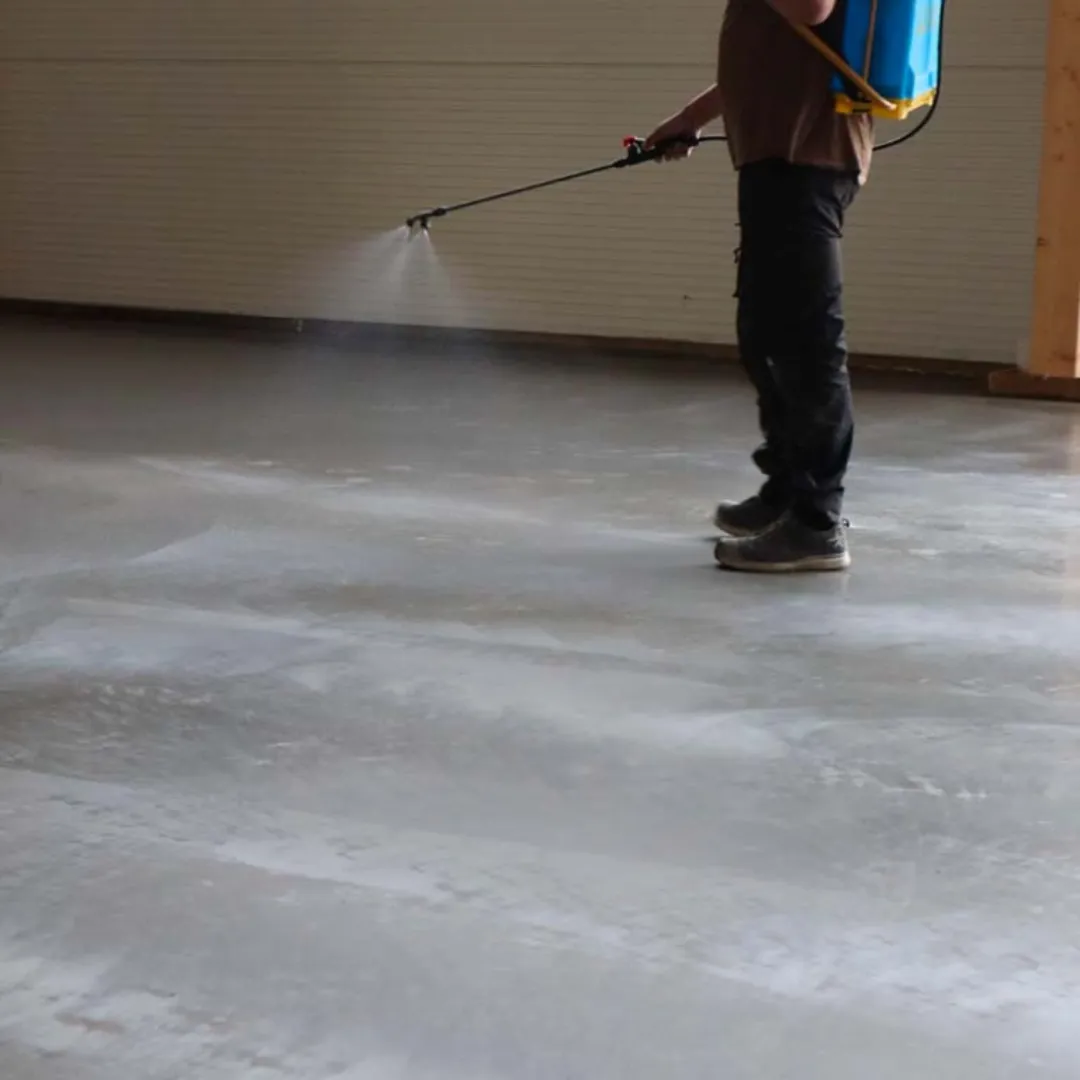
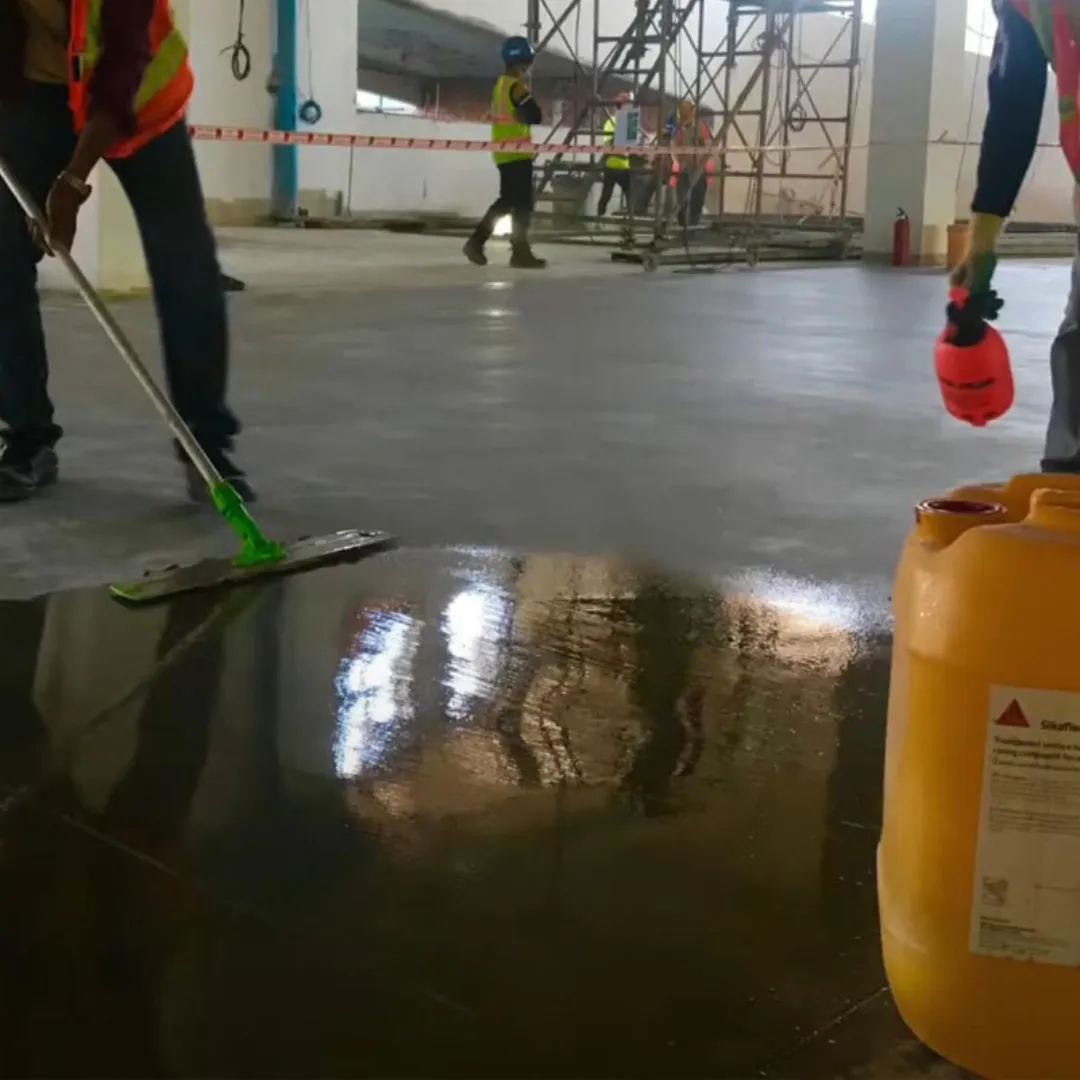

These are liquid sealers or densifiers made of silicate or lithium compounds. They penetrate into the concrete and chemically react with free lime to create a denser, harder surface.
- 🧪 Easy to apply on new or old concrete
- 💧 Dust-proof and low maintenance
- 🧼 Improves floor finish and strength over time
Applications: Warehouses, showrooms, commercial spaces, industrial floors.
Epoxy-Based Floor Hardener


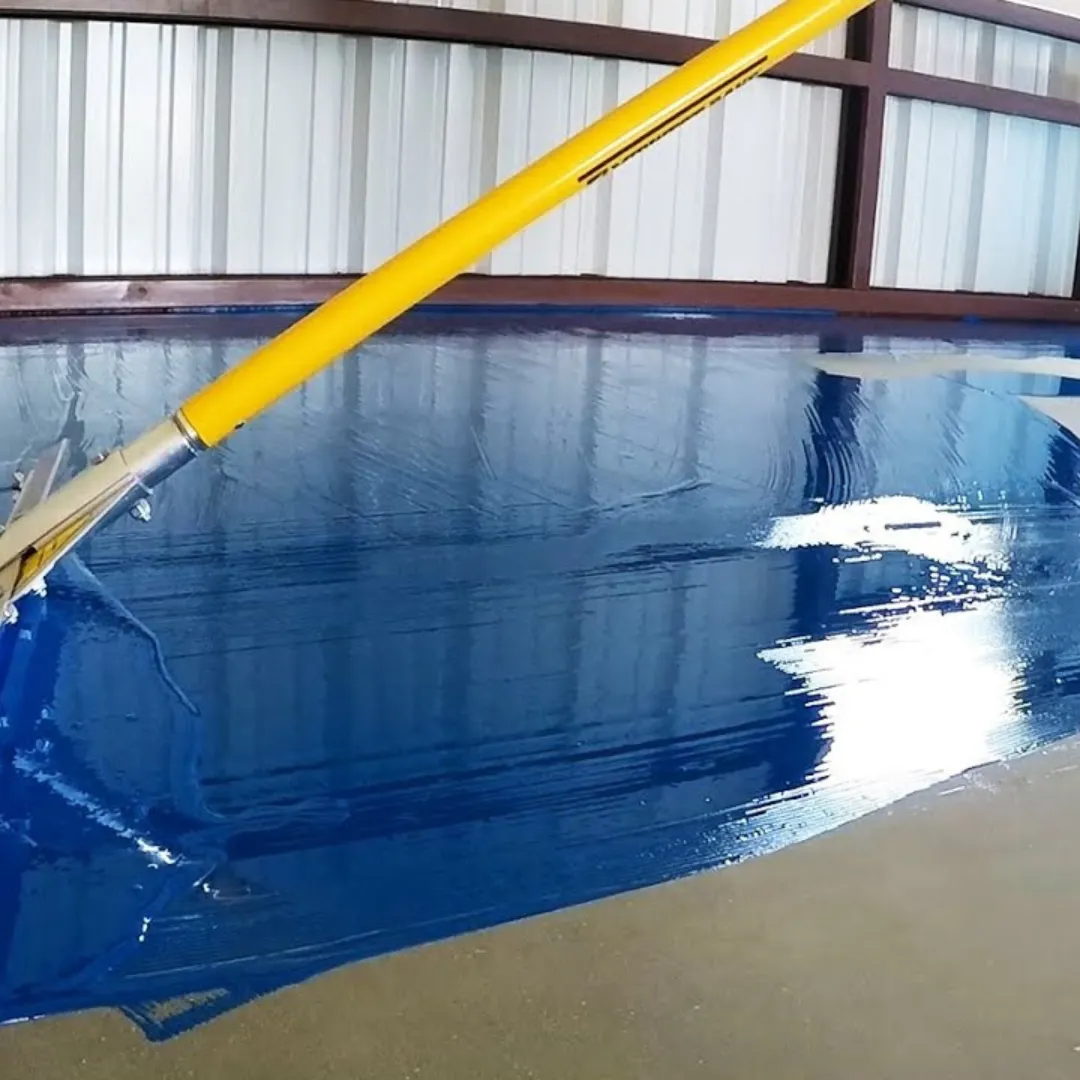
Epoxy hardeners are resin-based coatings that form a hard, glossy, and chemical-resistant layer on the floor surface.
- 🧱 Excellent for areas needing chemical and impact resistance
- 🧼 Seamless and easy to clean
- 🌿 Aesthetic finish
Applications: Hospitals, laboratories, clean rooms, food industries, car showrooms.
Materials Used in Floor Hardeners
Here’s a quick overview of the most common materials used in floor hardeners:
| Material Type | Characteristics | Applications |
|---|---|---|
| Non-Metallic Aggregates | Durable, non-rusting, economical | Industrial floors, parking, commercial areas |
| Metallic Aggregates | High strength, impact-resistant | Heavy-duty industries, loading docks |
| Silicate / Lithium Densifier | Penetrative, chemical reaction with concrete | Warehouses, commercial floors |
| Epoxy Resin | High chemical resistance, seamless surface | Hospitals, labs, showrooms |
Applications of Floor Hardener
🏗️ Industrial Warehouses
- Heavy traffic from forklifts, pallet trucks, and machinery.
- Floor hardeners prevent surface wear and extend service life.
🧱 Factories & Manufacturing Units
- Reduces surface dusting and maintenance costs.
- Enhances resistance against impact from equipment.
🅿️ Parking Lots & Garages
- Prevents rutting and surface erosion from continuous vehicle movement.
- Non-slip finishes enhance safety.
🏢 Commercial Buildings
- Improves aesthetic appeal and durability.
- Low maintenance compared to regular concrete.
🏫 Hospitals & Educational Institutions
- Easy to clean and resistant to chemicals, oils, and disinfectants.
- Ideal for hygienic and safe environments.



The installation of floor hardeners depends on the type chosen (dry shake, chemical, or epoxy). Here’s a general process for dry shake hardeners (commonly used in industrial flooring):
Surface Preparation
- Pour and level fresh concrete.
- Ensure a smooth and uniform base.
- Avoid excess water or laitance on the surface.
Application of Hardener
- Broadcast the floor hardener uniformly over the fresh concrete surface.
- Allow it to absorb surface moisture.
- Apply in two stages for best results.
Floating
- Use a power trowel or hand float to embed the material into the concrete.
- This ensures even distribution and surface bonding.
Troweling and Finishing
Perform multiple troweling passes to achieve the desired finish — smooth, non-slip, or polished.
Curing
- Cover with a curing compound or wet burlap.
- Proper curing ensures maximum strength and durability.
Optional Sealers
Applying a chemical sealer or epoxy topcoat can further enhance surface protection.
Maintenance of Floor Hardener Surfaces
Proper maintenance extends the lifespan of the floor.
Routine Maintenance Tips:
- 🧹 Sweep and mop daily to remove dirt and debris.
- 💧 Avoid harsh acids or chemicals unless the floor is sealed with epoxy.
- 🧪 Use recommended cleaning solutions.
- 🧰 Inspect regularly for cracks and wear.
- ♻️ Reseal or recoat periodically (especially for epoxy finishes).
Advantages of Floor Hardener
| Benefit | Description |
|---|---|
| 🏗️ Durability | Increases compressive and surface strength of concrete floors. |
| 🚧 Wear Resistance | Protects against heavy traffic and machinery movement. |
| 🧼 Low Maintenance | Reduces dusting and cleaning frequency. |
| 💧 Chemical Resistance | Ideal for industries exposed to oils, greases, and chemicals. |
| 🪨 Aesthetic Finish | Provides a smooth and professional look. |
| 💰 Cost-Effective | Reduces repair and replacement costs over time. |
| 🧯 Slip Resistance | Safer working environments with proper finish. |
| 🌿 Environment Friendly | Increases lifespan, reducing construction waste. |
Choosing the Right Floor Hardener
Choosing the appropriate floor hardener depends on several factors:
- Type of industry: Heavy-duty vs light-duty flooring needs.
- Traffic Load: Forklifts and trucks require higher abrasion resistance.
- Chemical Exposure: Epoxy and silicate are better for chemical environments.
- Budget: Dry shake is economical; epoxy offers premium performance.
- Aesthetics: Epoxy provides a glossy and modern look.
Example
- For warehouses → Non-metallic or chemical hardeners.
- For steel factories → Metallic hardeners.
- For hospitals or showrooms → Epoxy-based hardeners.
Standards & Quality Certifications
When selecting a floor hardener, ensure it complies with international quality standards such as:
- ASTM C779: Abrasion resistance of horizontal concrete surfaces.
- ASTM C944: Resistance to abrasion of concrete using a rotary-cutter method.
- BS 8204: Screeds, bases, and in-situ floorings in buildings.
- EN 13892-4: Surface hardness testing.
Certified products guarantee long-lasting performance and safety compliance.
Common Industries Using Floor Hardeners
- 🏭 Industrial Warehouses
- 🏗️ Manufacturing Units
- 🚉 Airports & Railway Stations
- 🅿️ Parking Garages
- 🏢 Commercial Buildings
- 🏥 Hospitals & Laboratories
- 🧪 Pharmaceutical & Food Industries
- 🏬 Retail Stores & Showrooms
Comparison: Floor Hardener vs Regular Concretea
| Feature | Regular Concrete | Floor Hardened Concrete |
|---|---|---|
| Surface Strength | Moderate | High |
| Dusting | Frequent | Minimal |
| Durability | Medium | Long-lasting |
| Chemical Resistance | Low | High (especially with epoxy) |
| Maintenance Cost | High | Low |
| Aesthetic Appeal | Basic | Smooth, polished, or glossy |
| Slip Resistance | Variable | Can be customized (non-slip finish) |
Tips for Floor Hardener Application
- Don’t apply dry shake hardeners on over-wet surfaces — they won’t bond properly.
- Apply hardeners evenly in two stages to avoid patchiness.
- Use experienced flooring contractors for best results.
- For epoxy hardeners, ensure proper surface preparation and priming.
- Curing is critical — never skip it.
Conclusion
Floor hardeners in Pakistan are not just an extra layer — they’re a powerful reinforcement that enhances the life, strength, and beauty of your concrete floors. Whether you need industrial-grade durability, chemical resistance, or aesthetic appeal, there’s a floor hardener solution to match every requirement.
By choosing the right type of floor hardener and ensuring proper installation and maintenance, you can achieve:
- Long-lasting floors
- Lower maintenance costs
- Safer working conditions
- Higher ROI on flooring investment
From warehouses to hospitals, factories to parking areas, floor hardeners have become a standard flooring solution worldwide.
FAQ'S
Floor hardener increases the surface strength of concrete, reduces dusting, and improves wear resistance.
Yes. Chemical hardeners (liquid densifiers) and epoxy coatings can be applied on existing floors.
Typically 10–20 years, depending on traffic, maintenance, and material used.
Non-metallic or metallic dry shake hardeners are commonly used in heavy-duty industries.
While it improves water resistance, for full waterproofing, an additional sealer or epoxy coating may be required.
Yes. Although the initial cost is slightly higher than plain concrete, it saves on long-term maintenance.
Yes. Epoxy floor hardeners provide a high-gloss finish, ideal for showrooms and commercial spaces.
